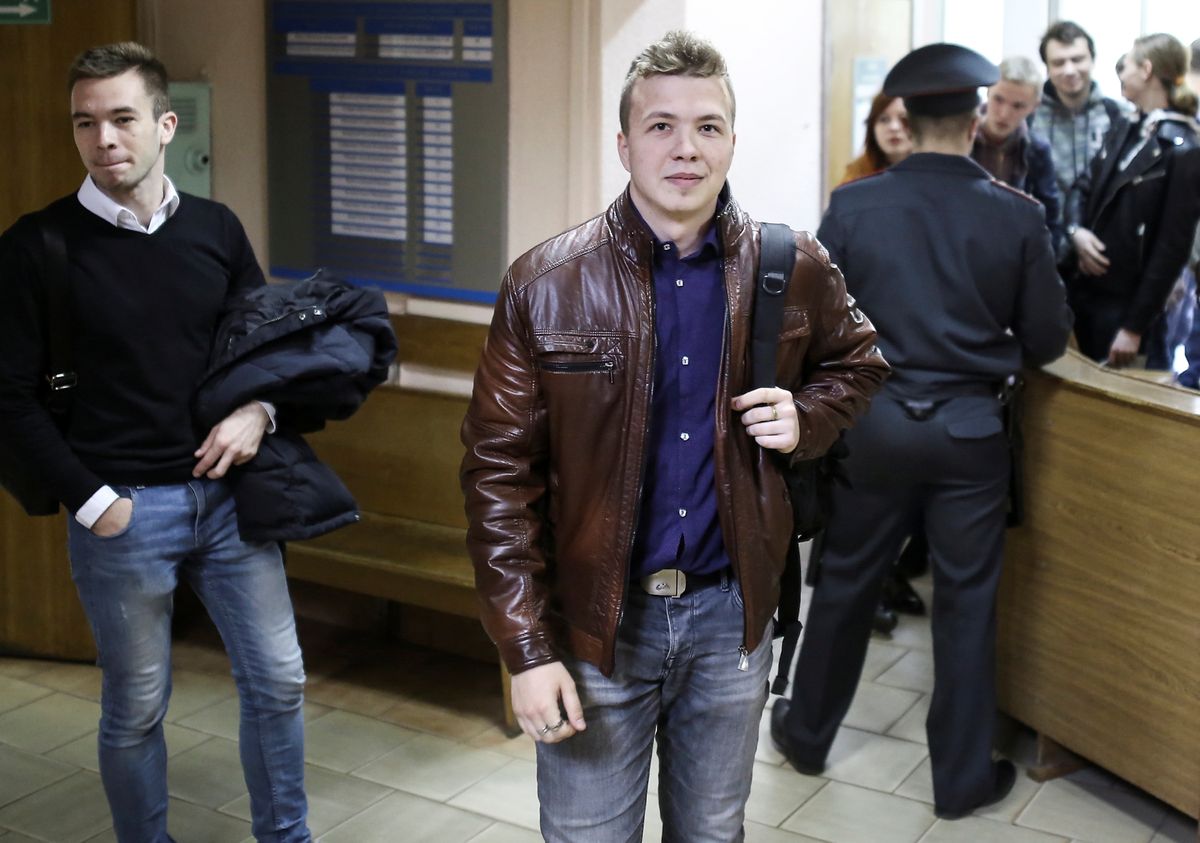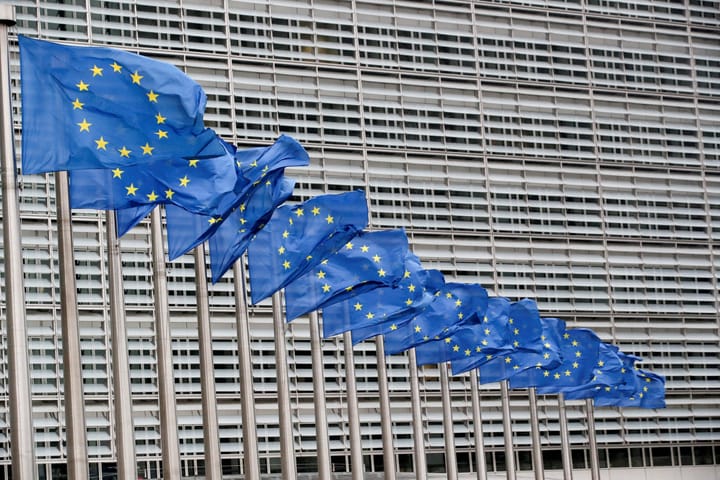How have Europe and the US responded to Lukashenko’s arrest of that Belarusian reporter?

A few minutes every morning is all you need.
Stay up to date on the world's Headlines and Human Stories. It's fun, it's factual, it's fluff-free.
Protasevich’s family has said that they fear he will be tortured by the authorities. They’ve called on the EU and the international community to put “unprecedented pressure” on Belarus to let Protasevich go.
- On May 23, a dissident Belarusian journalist was arrested when the Ryanair flight he was on was forced to land in Minsk, Belarus’ capital, after Belarusian authorities warned the flight crew that a bomb was on board. No bomb was ever found.
- Many have regarded this as just the latest attempt by Belarusian President Aleksandr Lukashenko to silence opposition to his nearly 27-year long rule. Lukashenko has been described as “Europe’s last dictator” and his strongman regime has close ties to Putin’s Russia.
- Lukashenko has used violence when dealing with dissidents before. Just recently, he’s ordered the raiding of media stations critical of him and has authorized the use of force against protesters, among other things.
- But forcing the landing of an international flight is the furthest Lukashenko has gone yet.
How has the EU responded?
- On Monday, leaders of the European Union agreed on a set of sanctions and demands against Belarus. The sanctions were somewhat predictable, but what was surprising was how fast EU leaders acted, considering that the EU is known for being pretty slow and bureaucratic.
- The EU also called for airlines operating in its 27 member nations to avoid flying through Belarusian airspace. The EU announced this as a safety measure to avoid playing, in the words of EU Council chief Charles Michel, “Russian roulette with the lives of innocent civilians.”
- European leaders also called for the release of the arrested journalist, Roman Protasevich, and his Russian girlfriend, Sofia Sapega, who was taken off the plane with him.
- Ursula von der Leyen, the president of the executive European Commission, said that a €3 billion investment package would be given to Belarus when the country “becomes democratic.”
How has the US responded?
- American President Joe Biden called the actions of the Belarusian government “shameful assaults on both political dissent and the freedom of the press.”
- Biden also backed calls for an international investigation into what exactly happened with the bomb threat, the forced landing of the plane in Minsk and the arrest of Protasevich.
- Biden hasn’t been much more specific about what if any action he intends to take. He’s mostly just spoken in support of the sanctions brought by the EU.
So what’s going to happen?
- Well, so far it’s pretty unclear if Protasevich will be released from Belarusian custody or not. Just a day after his arrest, Belarusian authorities released a video of Protasevich where he confesses, likely under force, to a list crimes against the government.
- Protasevich’s family has said that they fear he will be tortured by the authorities. They’ve called on the EU and the international community to put “unprecedented pressure” on Belarus to let Protasevich go.
- But the sanctions might do more harm than good. According to Benno Zogg, a senior researcher in the Swiss and Euro-Atlantic Security Team at the Center for Security Studies, the sanctions on Belarus by western countries might just have the effect of making the country even more reliant on Russia. This would likely make the task of supporting democratic forces within Belarus even more difficult.
Have a tip or story? Get in touch with our reporters at tips@themilsource.com




Comments ()